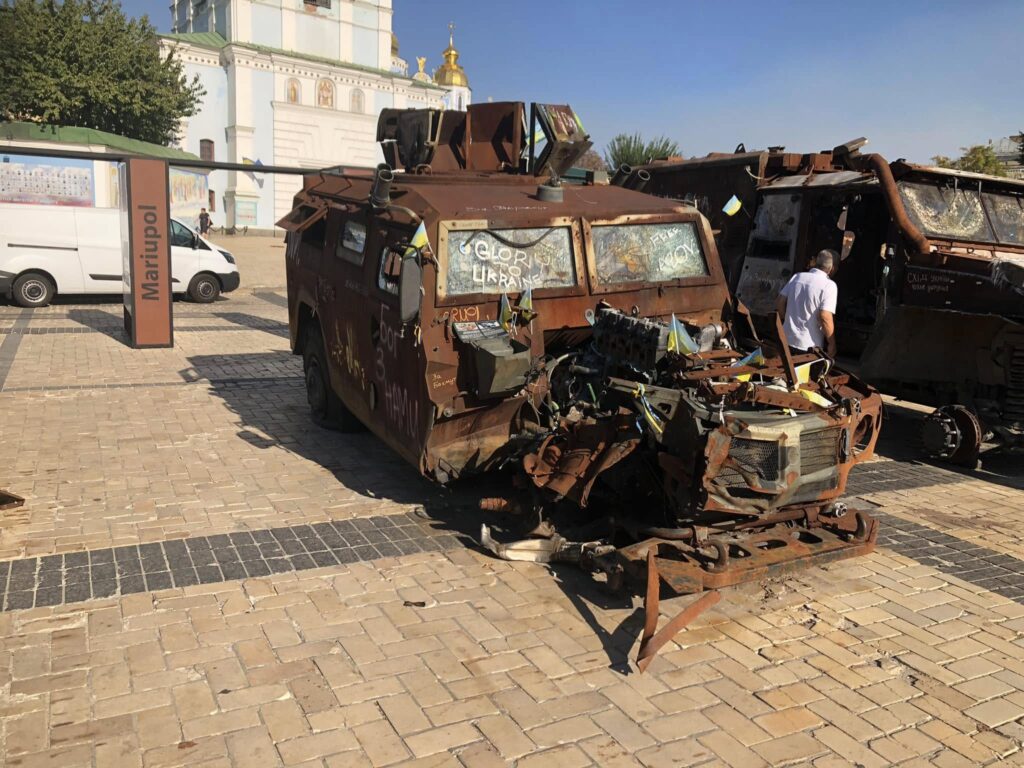May you live in interesting times ―Not a Chinese curse, Author unknown
Dr. Oleksandr Karpenko
Profile:
Dr. Oleksandr Karpenko is a former Colonel in the Armed Forces of Ukraine, with over 20 years of experience in the military. Dr. Karpenko has experience serving with the UN Mission in Liberia. He is currently the CEO of a private defense contracting company. Dr. Karpenko holds a PhD in international relations from Taras Shevchenko University in Kyiv.

The full-scale Russian invasion into Ukraine in 2022, and even earlier the annexation of the Autonomous Republic of Crimea and the occupation of Donbas, caused an avalanche-like shift in international relations and a revision of the existing rules of relations between the subjects of these relations.
From war-torn Ukraine, which since 2014 has experienced firsthand the helplessness of the world community to ensure compliance with rules and agreements, the actions of the Russian Federation and the international community have clearly demonstrated that the world will no longer be the same as before.
And although the Russian dictator Putin claims that it was the West that first violated certain agreements with the Russian Federation when it invited the Eastern European countries of the former Soviet bloc to NATO, it was the Russian Federation’s actions against Ukraine that demonstrated that the old agreements and rules do not work: they can be violated, and no responsibility arises. Despite over 300 bilateral agreements between the Russian Federation and Ukraine, which were in force between the states at the time of the Russian Federation’s full-scale invasion in 2022 (not to mention the fact that the Russian Federation acted as a documented guarantor of Ukraine’s territorial integrity after its renunciation of nuclear weapons in 1994), all these papers and agreements did not prevent the Kremlin from committing armed aggression against Ukraine.

The actions of the administration of US President D. Trump (statements about the inevitability of Greenland’s accession to the USA, demands to review the Panama Canal’s affiliation and to annex Canada to the USA, as well as the actual start of trade wars with the whole world through the introduction of restrictive tariffs) can be considered a continuation of the activities initiated by Putin to destroy the old world order and the system of international relations that has developed since the Peloponnesian Wars and Thucydides.
What will serve as the basis for relations between states in the future, if old agreements, treaties and international institutions are rejected by states that claim the right to rule the world in this new world system?
From Ukraine, which has been at war for more than 10 years against a much stronger and more aggressive enemy, the answer seems obvious: the world is being offered to build relations based on the power of force.
In the future model of the world that is being offered to us, there can be no equal relations between subjects: if a large state claims a certain territory or part of another state or seeks to improve its trade balance at the expense of the interests of others, less influential subjects must agree and not resist.
However, the experience of the Ukrainian struggle against Russian aggression, and before that the Finnish resistance to the Soviet invasion in 1939, as well as the unsuccessful US campaigns in Vietnam and Afghanistan, have proven that the influence and dominance of a certain country in the world or region does not guarantee success in imposing its will on states smaller in size and military power.
Moreover, a model of relations in which there is no dialogue between its subjects has already proven its ineffectiveness: just as slave labor is ineffective compared to market relations, where the parties are interested in achieving the result of their activities, so imposing one’s will in international relations causes tension and does not contribute to solving the accumulating problems.
Similarly, it seems that dialogue is necessary and inevitable to stop the Russian aggression against Ukraine. At the same time, Moscow, under the current regime, interacts with Ukraine and the world by making ultimatums and unilateral demands. In case of disagreement, Moscow threatens to use nuclear weapons or carries out terrorist attacks against the civilian population, trying to force Ukraine and the world to listen to Kremlin’s monologues through intimidation.
Will the revisionist states understand the futility of their activities in imposing their will on the rest of the world? It seems that the significant losses of the Russian Federation in Ukraine and the Kremlin’s inability to achieve its goals in Europe, as well as the world’s reaction to the introduction of US tariffs and the actual beginning of a global economic crisis caused by D. Trump’s actions, may force the leaders of the “new world order” to reconsider their approaches and finally understand the need for dialogue with the rest of the world.
In any case, it seems that the world has found itself in the culminating part of the play and we will soon witness its radical changes.

